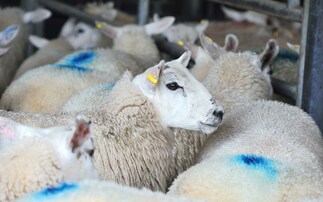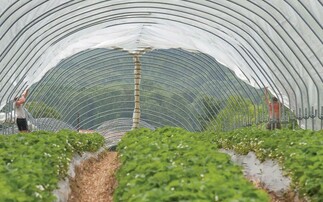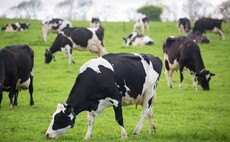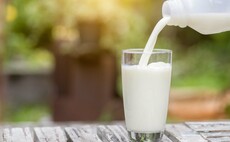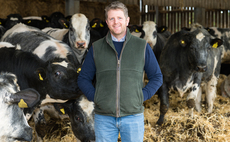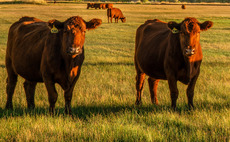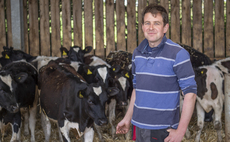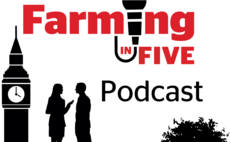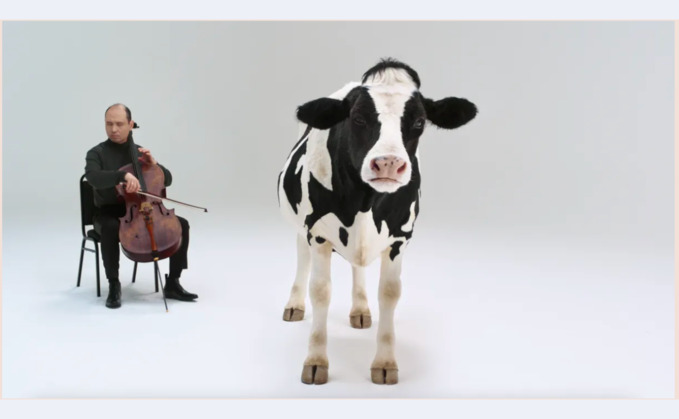
Flora's advert says ‘cow butter' is ‘weird' – but how detrimental is this sort of direct anti-dairy advertising to our industry?
Using ITV's I'm a Celebrity Get Me Out Of Here star Sam Thompson to front the campaign, Flora's new series with Sam, Milking It, explores Gen Z's attitude to our daily habits – and dairy produce comes under fire.
On its website it says:
Ever thought about how eating dairy butter is, well, strange? Because we do! So, we set out to discover whether the nation's view on eating dairy butter is like our own…that it's a bit weird when you really think about it.
Targeting dairy farmers
The plant-based company's tirade on the dairy sector does not stop there either. A well-known dairy YouTuber Charlotte Ashley also got in touch to say that Flora adverts had been popping up on her channel, and that viewers had made comments.
LISTEN NOW: The Íæż½ã½ã podcast: Cumbria farmer Charlotte Ashley makes the transition from beef to dairy
For your content to show up on specific channels, you must input keywords so that your adverts appear on such related content – and this begs the question: Has Flora deliberately targeted dairy farmers?
According to research leader IBIS World, the butter and cheese market in the UK measured at £4.6bn in 2023, up 11.8 per cent from the previous year. That is a lucrative market for alternative plant-based companies to target.
Charlotte, who has recently converted to dairy on her farm in Cumbria, has now blocked Flora from serving adverts to her specific channel – she has over 22,000 followers and on TikTok it is over 109,000.
She said: "As with many things in life you shouldn't have to put others down to elevate yourself and this applies to products as well. I always had Flora down as running good marketing, not this shoddy attention-seeking attempt at division."
When approached about whether its advertising was harmful to the industry and about its appeared deliberate YouTube advert targeting, Flora said:
"Skip The Cow is a light-hearted campaign aimed at getting people to make informed decisions about the environmental and health impacts of their consumption. This is part of Flora Plant's ongoing commitment to provide consumers with choice, and to offer natural, delicious, plant-based food that is good for them and the planet. We couldn't produce our products without farmers, who grow the plants that go into our Flora Plant products."
Comments on X also highlighted concerns about this type of direct marketing – even those who buy dairy-free products for allergy reasons.
One read: It's just margarine dressed up as 'plant butter'.
Another said: Always fancied going with ‘the original plant based milk' - who can argue that the milk isn't based on plants, that's what cows eat. Or a cow grazing in a field with the slogan ‘milk based on plants'. Some disruptive marketing.
Butter vs plant-based spread
NFU dairy chair Paul Tompkins said: "Let's be clear, this is not butter and relying on word play for promotion is elementary marketing. Real, creamy, whole butter is not in the same food group as the alternatives, they do not share the same ingredients nor nutrition, so calling them the same is misleading."
Amy Bateman, a Lake District farmer also posted that it is ‘incredibly divisive.'
She has to purchase non-dairy spreads for her dairy intolerant children but said [Flora's] message makes ‘me avoid their products - Oatly milk too. As we still eat/consume animal products they are alienating more of their market.'
One of Flora's TV adverts has also caused alarm to industry organisations with its use of language. It says cows are ‘pumped' with plants in order to make milk.
AHDB said: "We have complained to the Advertising Standards Agency (ASA) about a Flora advert that asks: Is it a bit weird we've spent so many years pumping plants through a cow?
"This is because ‘pumping' is widely defined and understood to imply force, pressure or a mechanical action. AHDB believes using this term implies cows are either force fed or are fed foods that are contrary to their natural diet. Force feeding is banned in the UK under The Welfare of Farmed Animals (England) Regulations 2000 and so, dairy cows are never force-fed.
"Cows are herbivores and so rely solely on a plant-based diet.
"UK dairy cows are given access to fresh pasture and a feed ration containing plants only. This is supported by UK law which prohibits the feeding of animal-based proteins to livestock.
"Providing this information, AHDB believes the phrase 'pumping plants through' is misleading and breaches CAP code 3.1."
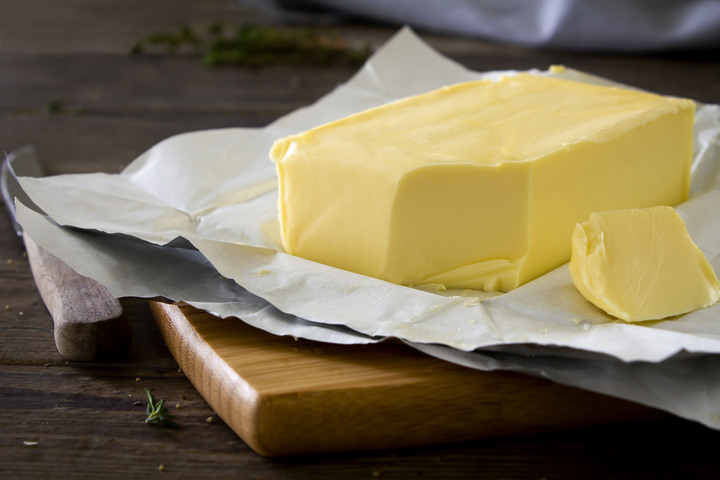
Vegan trends
Joanna Blythman, award-winning food writer and force within the culinary world has reservations on such ‘dishonest' marketing from Flora.
Confident it could ‘never win the taste or naturalness argument', she felt Flora have targeted the next generation, many of whom are on social media and closely follow food trends and fads.
"There is absolutely nothing weird about eating butter. Eating dairy and other livestock-sourced foods is one of the reasons that humans have evolved and developed bigger brains," she said.
"It is utterly irresponsible for Flora to promote its products to impressionable younger generations by discouraging them from eating one of nature's most nutrient-dense foods. So-called plant-based butter and dairy alternatives have a vastly inferior nutritional profile when compared to the natural foods they imitate.
"We eliminate valuable animal-source foods at our nutritional peril, courting micronutrient deficiency and the consequent health problems that generates. And the fewer ultra-processed foods you eat, the healthier you are likely to be."
But how much does advertising truly influence what shoppers are buying?
Advertising solutions agency Gourmet Ads state that encouraging emotional connection in food advertising is a main ‘trick' in the food advertising world. It unconsciously links the consumer to a desired emotional state, increasing the likelihood that the consume will purchase the product.
READ NOW: Farming groups fight back as council
PETA adverts
PETA have had some pretty hard-hitting adverts, the most recent in December 2023 where it likened eating a turkey to eating your pet cat.
Underneath was a clear call to action: Go vegan.
ASA did, however, deem an advert by Vegan Friendly too upsetting for viewers in 2022, after showing footage of farm animals ready for slaughter and a family at a dinner table. It then asked the viewer to ‘make the connection'.
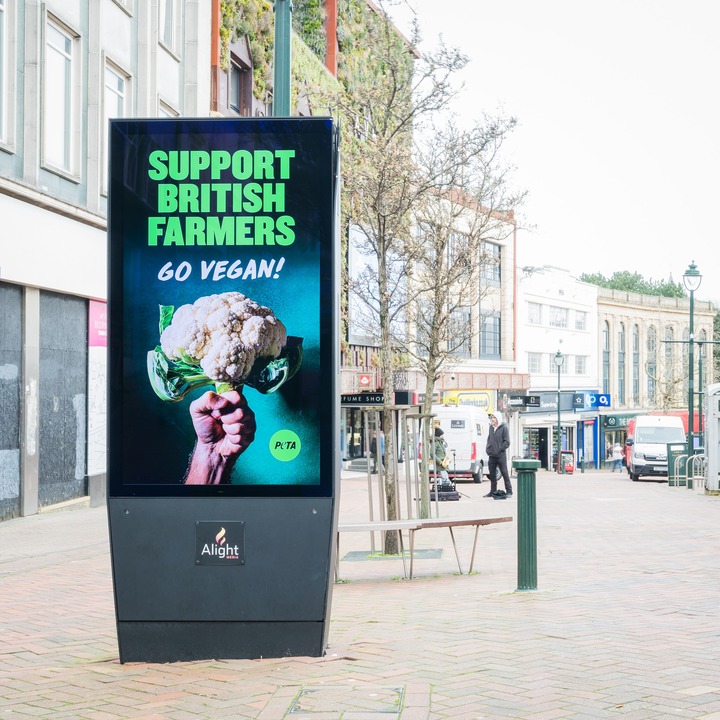
The playing field is somewhat uneven though. A number of pro-vegan adverts may have been taken down, but Swedish food giant Oatly won a four-year battle at the end of 2023 after being locked in a court feud with Dairy UK.
The issue was based around Oatly's slogan, Post Milk Generation, and the use of the term ‘milk.'
It could be an opportunity for the UK to follow its European counterparts in Italy and France, where the Government has banned any plant-based products from using some animal terms – for example, ‘steak' or ‘sausage'.
La Vie is a French plant-based pork producer, creating vegan bacon, hams and various other pork-related foods and selling in the UK.
But should their pork-inspired offerings be called, well, pork?
Their advertising is also deceptive.
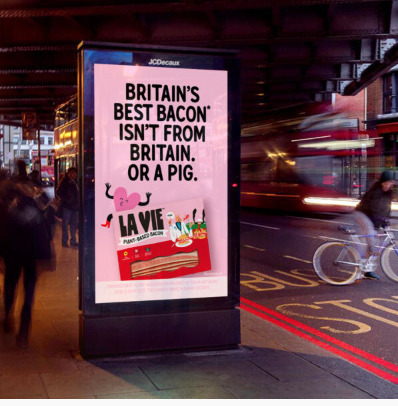
One states: Britain's best bacon isn't from a pig. Or Britain.
Another reads: Our parents for the property boom, but we've got vegan bacon that tastes like bacon.
Labelling has never come under scrutiny more – packed in the UK, slaughtered in the UK, Red Tractor assured, RSPCA assured, Tesco's fake farm names.
Do consumers, many with no connection to the food industry at all, really know what they are buying?
Food labelling issues
With price at the forefront of many shoppers' minds, and strong marketing from the plant-based brigade, it is easy to see how cost, the promise of the taste of the ‘real thing' and the environmental agenda could lead a shopper down the vegan aisle.
NFU deputy president David Exwood said: "We have always said that food labels must be clear, simple and contain accurate information, to give shoppers easy access to the information they want and for those that want to, select products produced by British farmers and growers which they know are traceable, safe and produced to high animal welfare and environmental standards.
"Relying on word-play can be confusing for shoppers and associated labelling and marketing should not mislead them about the nutritional properties and ingredients in food products."
But according to AHDB households in the UK are still buying staple meat and dairy products. Their report from March showcased that meat and dairy outperformed plant-based alternatives in January, which is prime-time for alternative products given Veganuary and meat-free Mondays.
Farm-to-fork stories are becoming a selling point too, and recent supermarkets have used top chefs like Tom Kerridge to push sales.
The Soil Association's 2023 Organic Market Report revealed the highest year-on-year growth in 15 years for the UK organic market, where dairy accounted for 27 per cent of the organic market.
The report also stated the organic industry was worth £3.1 billion, which tops the previous year by 1.6 per cent.
Leading the way in this area is new brand All Things Butter, who launched their own butter product in 2023 and have seen an incredible six-month sales period. On most of their packaging is one of their slogans: Artisan dairy since 1959.
Heritage plays a huge part in their marketing, but the brand's point of difference is its chef-led approach, creating unique flavours and puts British farming at the forefront. Made on Brue Valley Farm, where the same family has been churning butter for generations, the brand has had a strong start and has recently secured its first in-store listings with Sainsbury's and Asda, plus other stockists like Ocado.
More impressively, it has recently closed a £2.2 million seed funding round and with renewed support – its first six months saw sales sky-rocket selling over 250,000 blocks – there are new export opportunities to reach American and Middle Eastern markets.
Maybe that is where our industry's strength lies – in the stories behind the people who make the product, and more so, care.









